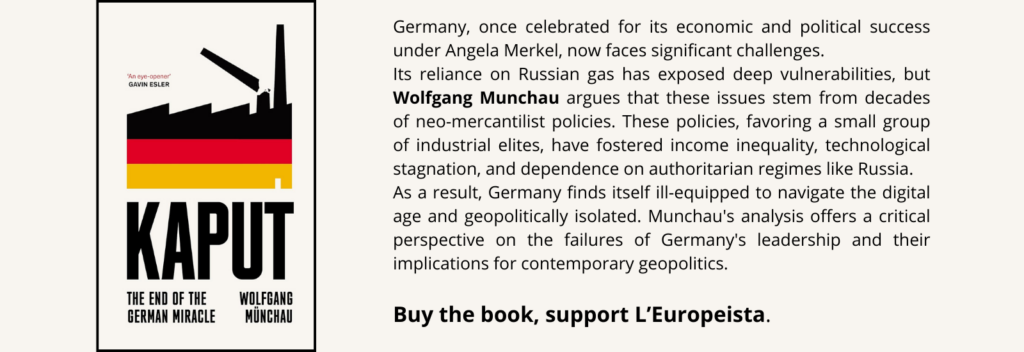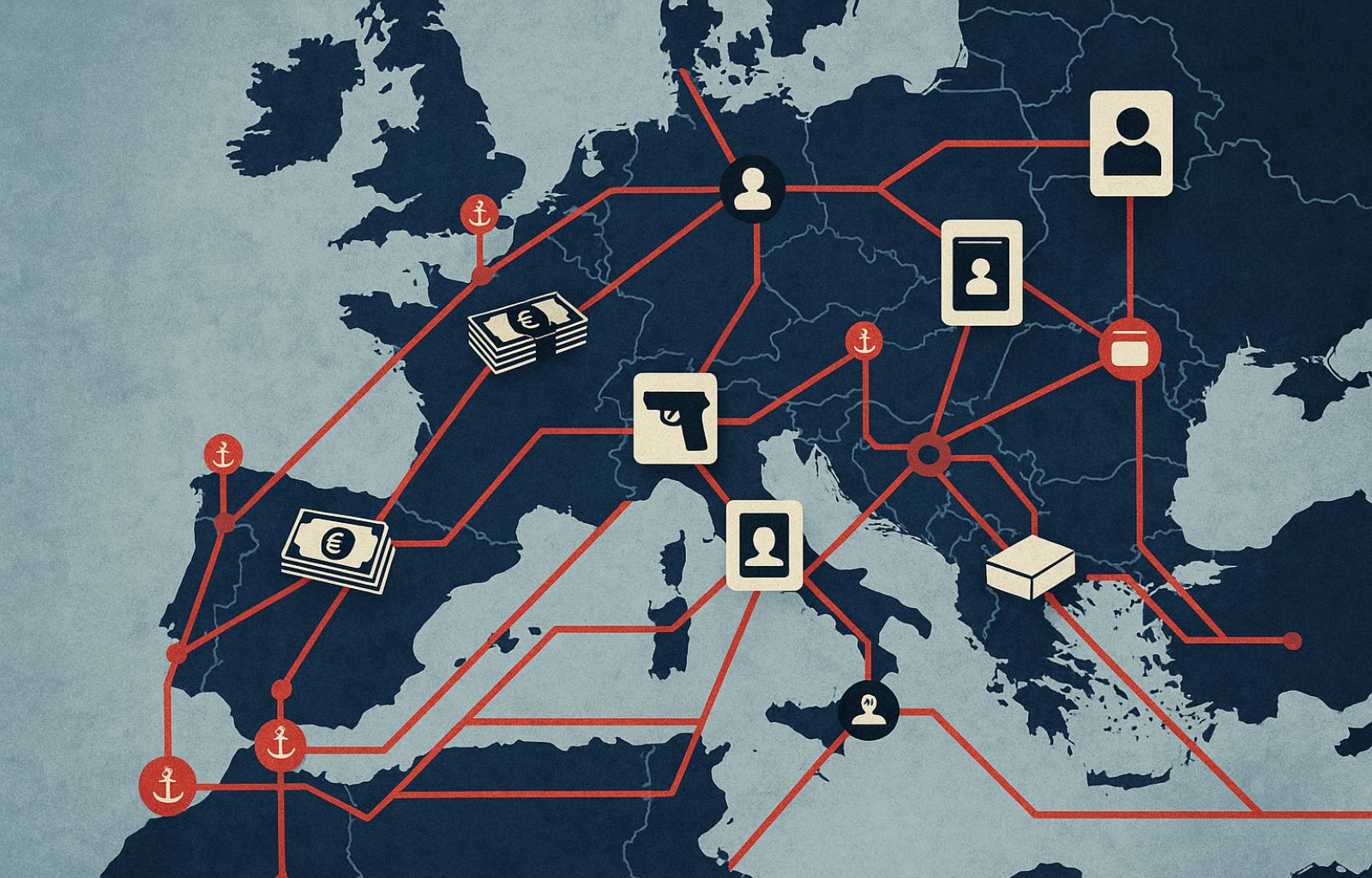European economic suicide, and how to be reborn

According to the European Commission’s autumn forecast, eurozone GDP is expected to grow by 0.7-0.8% year-on-year in 2024. This is, if we exclude the -6.1% slump attributable to the pandemic in 2020, the second lowest value recorded in the last 10 years after the 2023 figure, in which growth was limited to a paltry +0.4%. As is well known, there is the setback of economies – above all that of Germany – which for decades have driven the entire area, at times helping to soften the enormous difficulties that are gripping more and more countries on the continent, starting with the Mediterranean area.
Looking at the historical series of Eurozone GDP, it immediately jumps to the eye how the drama of asphyctic growth is a pathology that has become chronic. Moreover, the year-on-year change in GDP alone is not sufficient to contextualise the disease that has infected Europe, which only becomes apparent in all its severity when placed in perspective and compared with the economic indicators of the world’s leading powers.
In one of his tweets, Ole Lehmann, tech entrepreneur and brilliant German commentator, points out that in 2008 European and US GDPs were neck and neck, both standing at around $14 trillion. Today, on the other hand, with a GDP close to 28 trillion, the US economy is 50% larger than that of the European Union as a whole, which has grown negligibly compared to the figure recorded at the time when the two powers were essentially equal. In the same short period of time, moreover, we also witnessed Beijing overtaking Brussels in 2018. All this in 17 years, i.e. in the span of a single generation.
What, then, are the reasons behind what Lehmann appropriately calls ‘European economic suicide’? Are the causes of such a profound and sudden loss of competitiveness of a purely economic nature or is the gap, which today appears unbridgeable, rooted in substantial political and cultural differences?
“While Europe debates the ethics of artificial intelligence, America creates it. While Europe regulates cryptocurrencies, America innovates them. While Europe protects old industries, America creates new ones‘. This is how the German entrepreneur summarises the radical paradigm divergence that has led the European Union to develop a genuine addiction to hyper-regulation and the spasmodic bureaucratisation of every sphere of the economic fabric, testifying to a deep-rooted mentality averse to business and innovation.
Among the indicators of those divergences that, beyond and far beyond GDP, tell of a deep structural gap and a now chronic backwardness is labour productivity, which in the United States is 30% higher than the European average – especially in highly specialised sectors such as hi-tech. At the same time, Europe has preferred to maintain and even protect an asphyxiated status quo rather than stimulate innovation. The greater share of GDP that the United States allocates to investment in research and development translates into the creation of districts, such as that of Silicon Valley, in which the cultural, fiscal, legal and regulatory substratum allowsfor a concentration of capital and talent that enables the country to have more than half of the so-called ‘unicorns’ – understood as technology start-ups valued at more than a billion dollars – operating globally today.
The result is that, in the meantime, the United States has given birth to no less than nine new companies valued at more than a trillion dollars, while Europe has not contributed in any way to this ranking. Indeed, as Politico points out in its bulleted list of reasons why America has outperformed the old continent, not a single company worth $100 billion has been founded in Europe in the last fifty years. By contrast, 73% of the world’s thirty largest high-tech companies are based on American soil.
It is no coincidence that in the Draghi Report, a document on the future of European competitiveness presented last September to the President of the European Commission Ursula Von Der Leyen, the former President of the ECB and the Italian Council of Ministers expressed concern about how “many European entrepreneurs prefer to seek funding from US venture capitalists and grow their businesses in that market” rather than remain in the EU.
This also results in huge differences in salaries, which, as is well known, are among the main reasons behind the mass brain drain of young European brains, which exacerbates the social scourge of the falling birth rate in an increasingly ageing continent. This issue, that of an ageing population that no longer has children, to which Politico devotes another paragraph, highlighting how such a low birth rate erodes the number of individuals of working age and condemns the pension and health expenditure of European countries to reach unsustainable proportions.
While the US culture celebrates entrepreneurs and pioneers, the European vulgate, which portrays them as greedy exploiters, ends up legitimising an unproductive and oppressive fabric, where an immovable labour law makes both hiring and firing impossible, the tax burden wipes out small businesses, and the costs for companies to adapt to a leviathan of ever-changing regulations takes huge resources away from investment in innovation. On the other hand, as Lehmann points out, while in the US it takes only four days to set up a company, in France it takes as many as 84 days. It is no coincidence that Emmanuel Macron himself claims that the EU’s lag behind the US and China is due to over-regulation and under-investment.
A few hours now separate us from the inauguration of the new Trump administration and, although there are still doubts and questions about the political direction of the tycoon’s second term – especially in terms of geopolitics – what seems clear is that Europe will be called upon to be increasingly independent of the political and military support of its most historic ally. The new balances that are taking shape, therefore, impose the attainment of an economic dimension such as to prevent it from being relegated to the role of ‘maid of the United States’, to resort to the sad image painted by the Spanish publication Política Exterior.
Drastically lowering the tax burden, reforming the labour market and initiating an unprecedented process of deregulation, which would free the productive and entrepreneurial fabric from all obstacles: a political design, this, that represents the one and only last barrier to irrelevance and subalternity on the global chessboard.












